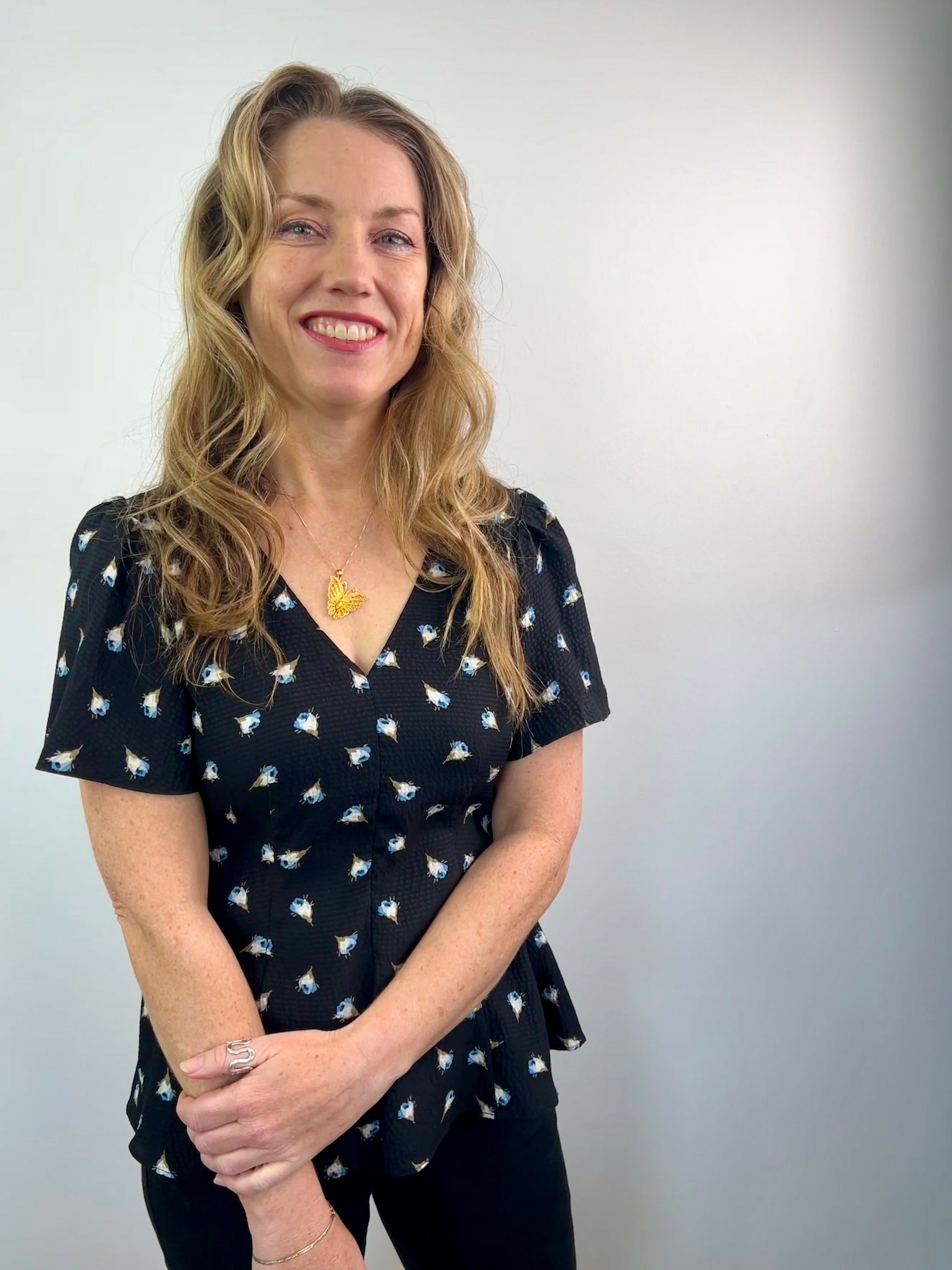Alright – so today we’ve got the honor of introducing you to Karen McPhail-Bell, PhD. We think you’ll enjoy our conversation, we’ve shared it below.
Karen, thanks for taking the time to share your stories with us today Can you share an important lesson you learned in a prior job that’s helped you in your career afterwards?
Two very different jobs taught me that to lead creatively, you have to trust your inner voice, even when no one else sees the vision yet.
Earlier in my public health career, I had a conviction that art and health belonged together. It was uncommon at the time and art was often medicalised (where non-medical issues are reduced to medical problems like disease or illness) or sidelined. But from years in health promotion, I knew that story, culture and expression are essential to wellbeing. So I painted, sketched and experimented, digesting the work I was doing. I studied the evidence and connected with other practitioners and researchers also bringing art into their practice. I invited creative approaches into my practice and into spaces that weren’t always ready.
Years later, as an international researcher at Facebook, I experienced spacious leadership that really impacted the way I connect with my own voice. My managers gave me full permission to lead, encouraging me to trust myself and shape my contribution. That experience taught me that my visibility and leadership were central to the impact I could make, for which I had to trust my instincts.
Now, as a creative leadership coach and artist, I help others hear and act on that inner voice. My paintings, my workshops and coaching are all invitations to reconnect with our inner knowing, joy and creative capacity. And with the world as it is today, I believe that connecting with our creative voice and strengthening our imagination is critical.
If someone reading this is feeling boxed in, I suggest starting where you are. Uncover what you truly want. Learn what you need to feel safe to make changes. Get support and connect with like-minded people. Small beginnings have the power to shift everything.
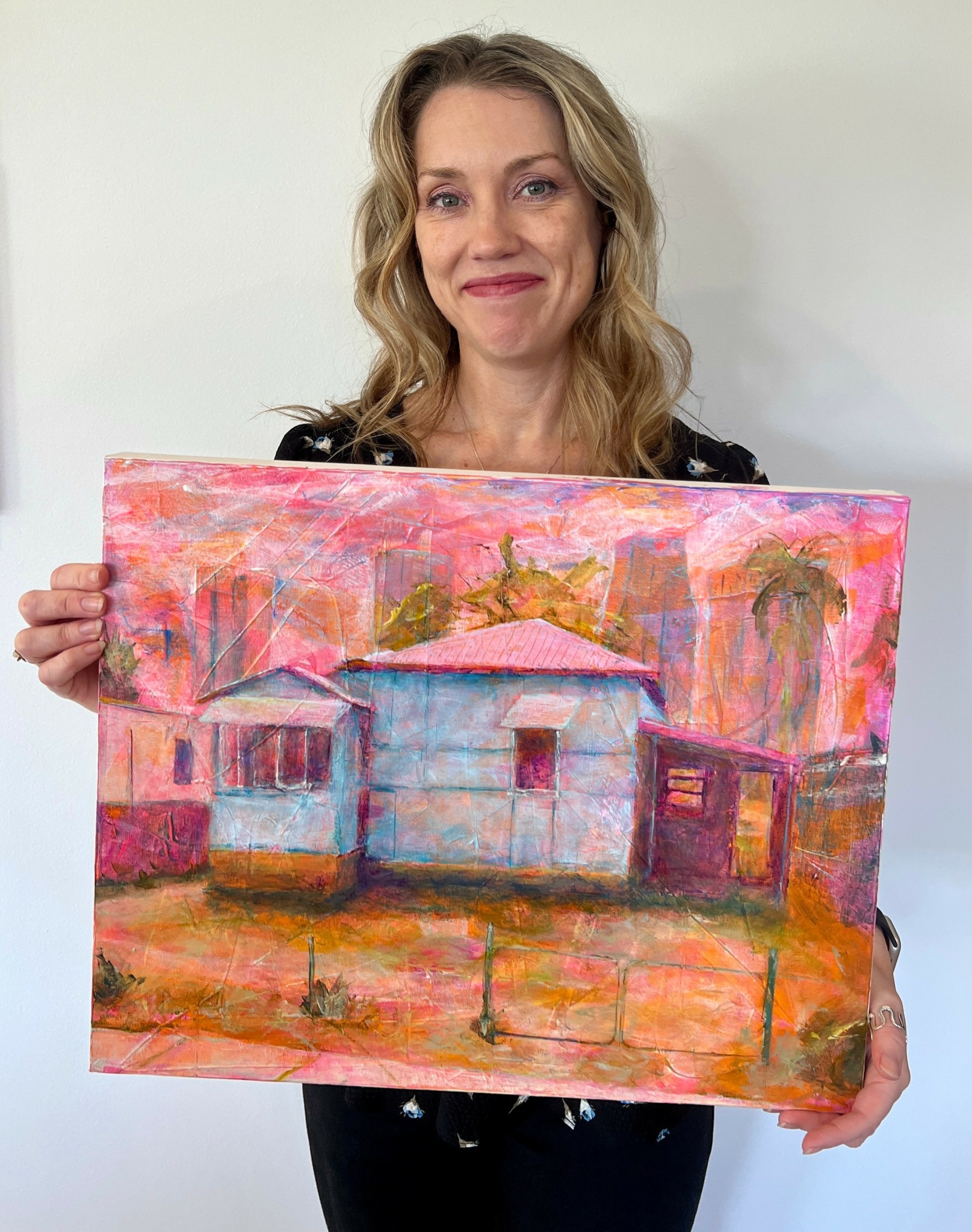
Karen, love having you share your insights with us. Before we ask you more questions, maybe you can take a moment to introduce yourself to our readers who might have missed our earlier conversations?
I’m an artist and creative leadership coach living and working on Kombumerri country (Gold Coast, Australia). I help values-based professionals, especially those at a career or life crossroads, to reconnect with their creativity and confidence so that they can lead and live in alignment with who they truly are.
My path has woven through public health, academia, tech and the arts. What’s been consistent is my commitment to people’s agency in shaping their own lives and wellbeing. I’ve always seen creativity as an essential part of this.
My mixed media paintings are intuitive and layered, inspired by place and local narrative, and the power of the women I work with. Collectors often say my art brings emotional depth, calm and beauty into their spaces.
In coaching, I support individuals and groups through life transitions, self-leadership growth and creative blocks. I also run arts-based coaching workshops and am developing a program to help people design regenerative lives using creative tools.
What sets me apart is how I blend creativity with deep listening and a critical systems lens, anchored on taking action to bring about aligned change.
With so much uncertainty, injustice and violence in the world, I believe we need a different way. And to do that, we need to come back to our creative selves, to each other and to nature, grounded in Indigenous sovereignty. All of my work is an invitation to do just that.
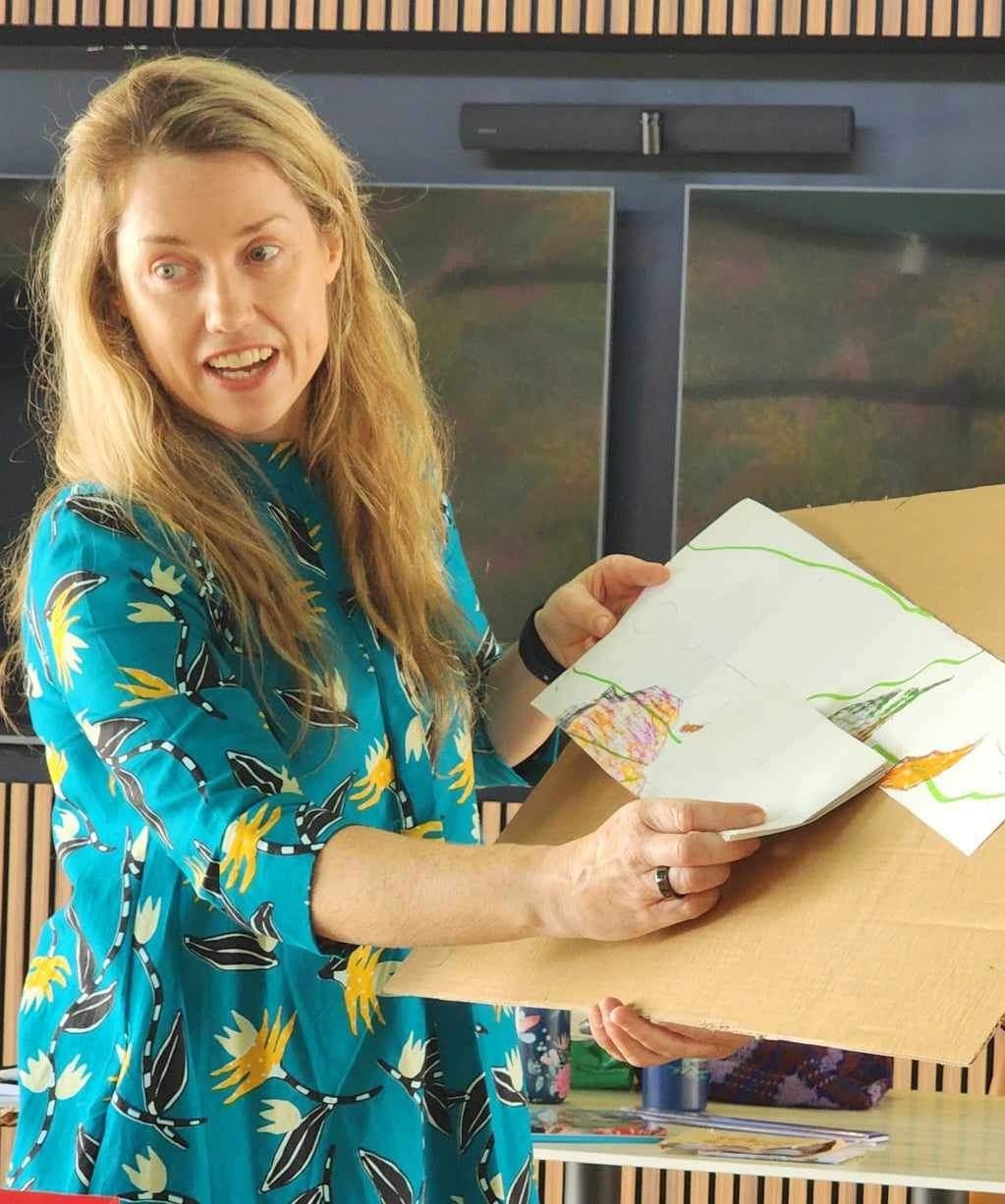
We often hear about learning lessons – but just as important is unlearning lessons. Have you ever had to unlearn a lesson?
I had to unlearn the idea that being valuable means being the expert.
That belief is deeply ingrained in so many professional cultures, especially the ones I’ve worked in. In a society that oppresses and advantages certain social identities, that means we end up with systems that reward dominance and certainty, over relationship and listening.
Being an ethnographer taught me how to practice in the grey spaces, and that black-and-white certainty misses the richness of human experience. One formative lesson was when I worked in HIV prevention in Solomon Islands. There was deep local knowledge for community-driven responses but it didn’t “fit” well into the funder’s linear Western frameworks. My role became one of translating those frameworks and partnering with local leaders and communities to co-create knowledge and navigate the process. It was a lesson in humility, power-sharing and grassroots leadership.
Now, as a coach and artist, I don’t feel pressure to have all the answers. In coaching, my role is as a partner to facilitate self-discovery and empowerment for change. In painting, I collaborate with the creative force working through me.
Unlearning being the expert is not only personal growth but a necessary act of social and cultural repair. Doing so ends up also being a kind of freedom because not needing to know means we can truly begin to listen.
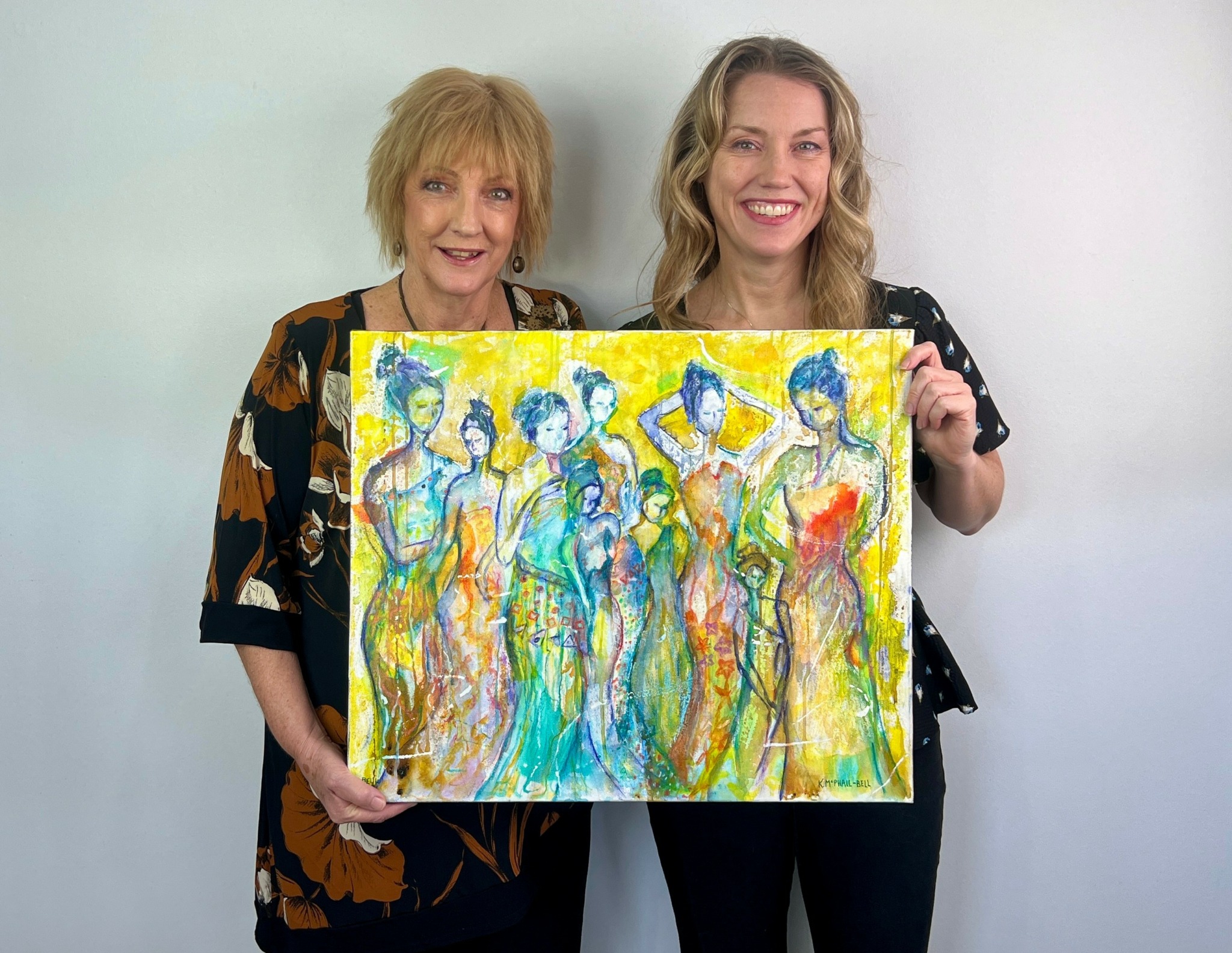
How can we best help foster a strong, supportive environment for artists and creatives?
First, we must stop treating art and creativity as optional extras. Art isn’t just “nice” or a luxury; it’s a part of being human and essential infrastructure for a thriving world. Creativity is how we process the world, and imagine and improve our ways of living. We need that more than ever.
To be creative one does not need “artistic talent”. We are all creative in different ways. This means that to support a thriving creative ecosystem is to support a lifetime of creative learning and expression for every person.
On how to support artists specifically: to me this means investing in artists’ work as essential, regardless of trends. That includes sustained funding (beyond one-off projects); time to collaborate, experiment and rest, and; ongoing places to create and exhibit/perform work professionally.
It also means shifting mainstream culture to value “artist” as a pathway and practice, with mentorship and support, and involvement in policy, health, education and community life.
At an individual level we can support artists by buying their art, attending shows, paying for workshops and joining their newsletters. These small actions make a real difference.
If you’re on the Gold Coast between 1–12 October, come see my duet exhibition “Let Colour Speak” at Robina Gallery. It’s a cross-generational collaboration with my artist mum, Jennie Bell, celebrating the voice of colour in our conversations. You can join my mailing list on my website for early access and creative inspiration. I’d love to connect.
Contact Info:
- Website: https://DrKMcB.com
- Instagram: https://www.instagram.com/drkmcb_art
- Facebook: https://www.facebook.com/DrKMcB/
- Linkedin: https://www.linkedin.com/in/karen-mcphail-bell/
- Youtube: https://www.youtube.com/@DrKMcB
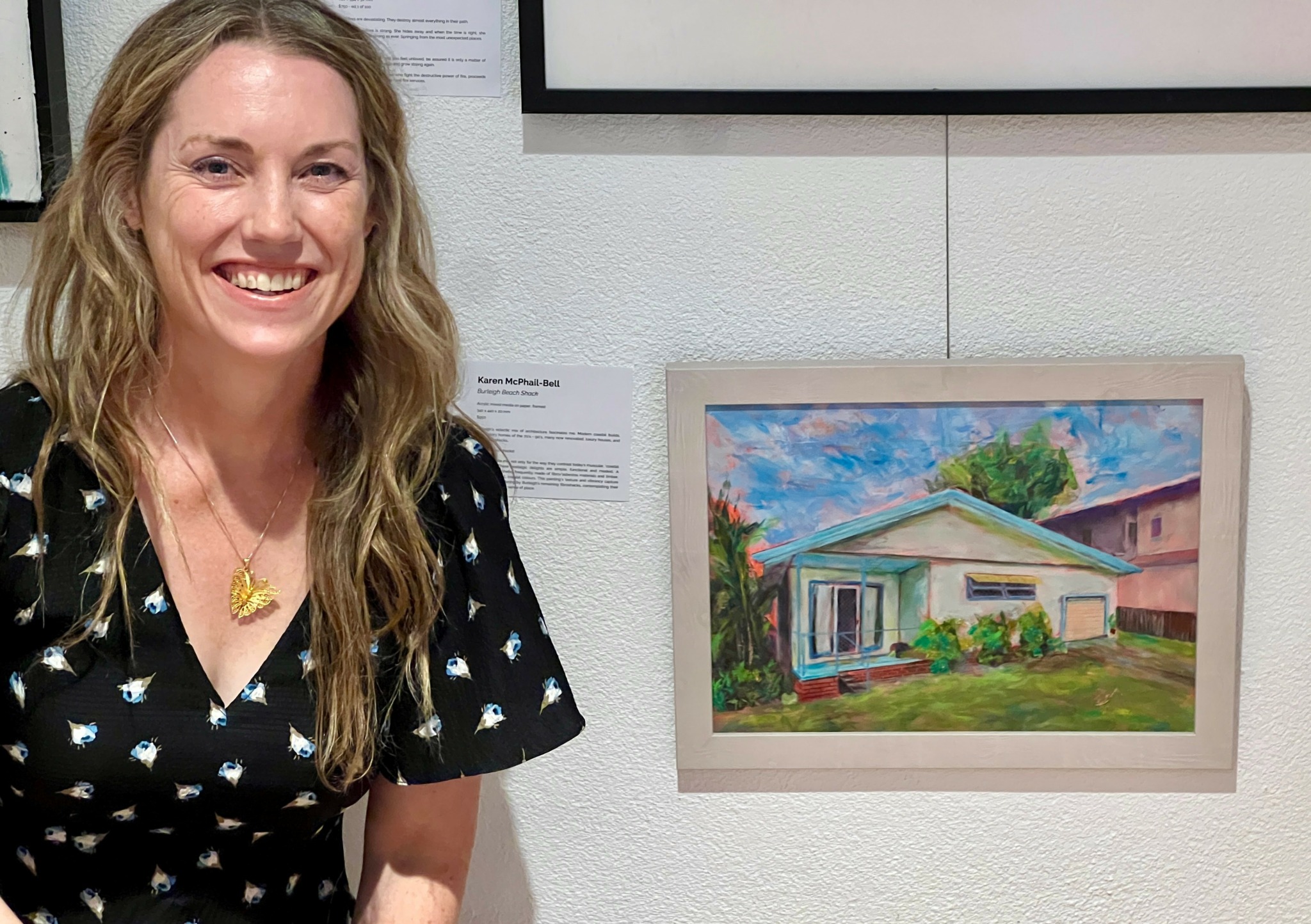
Image Credits
Image 3 photographer: Vanessa Fitzgerald Scott (Instagram: @orangebutterflyness @vanessafitzgeraldscott)
Image 4 caption: Karen with her mother Jennie Bell, holding one of their collaborative paintings.
Image 5 photographer: Michelle Walker (Instagram: @michellewalkerart)


